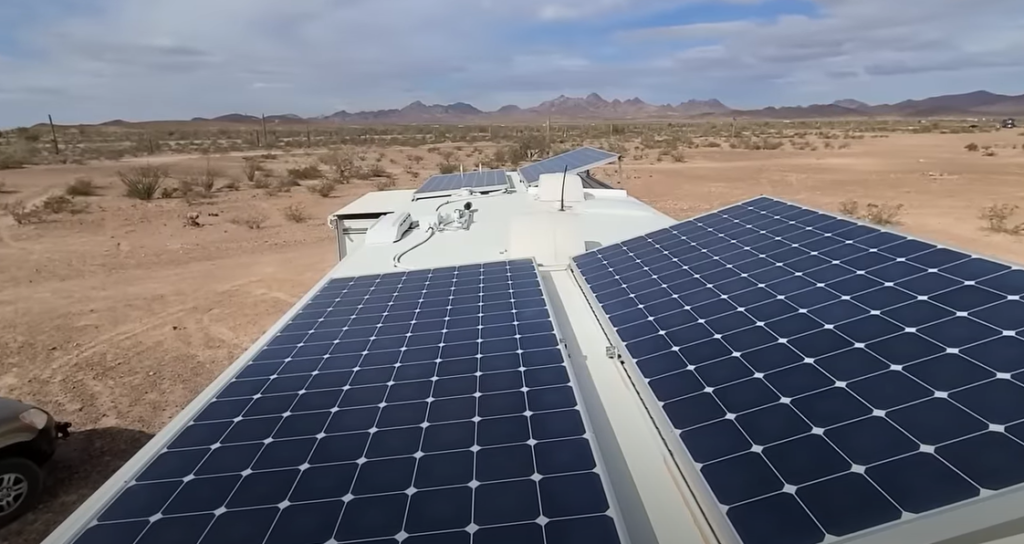
If you’re an avid RV traveler, you know that the ability to power your RV off-grid is crucial to your adventures. While traditional RV parks and campgrounds offer electrical hookups, many RV enthusiasts prefer the freedom of traveling off the grid. But how can you power your RV when you’re not hooked up to the grid? In this article, we’ll explore some of the best ways to power your RV off-grid.
Solar power
One of the most popular ways to power an RV off-grid is through solar power. Solar panels can be installed on the roof of your RV to capture energy from the sun and convert it into electricity. This electricity can then be used to power your RV’s lights, appliances, and other electronics. The amount of solar power you need will depend on your RV’s energy needs and the amount of sun exposure you get.
To install solar panels on your RV, you’ll need to purchase a solar panel kit. This kit should come with everything you need to install the panels on your RV, including the panels themselves, wiring, and mounting hardware. You may also need to purchase a charge controller to regulate the amount of power going into your RV’s battery bank.
Wind power
Another option for powering your RV off-grid is through wind power. Wind turbines can be installed on your RV to capture energy from the wind and convert it into electricity. Like solar power, the amount of wind power you need will depend on your RV’s energy needs and the amount of wind exposure you get.
To install a wind turbine on your RV, you’ll need to purchase a wind turbine kit. This kit should come with everything you need to install the turbine on your RV, including the turbine itself, wiring, and mounting hardware. You may also need to purchase a charge controller to regulate the amount of power going into your RV’s battery bank.
Generator
If you need a reliable and consistent source of power for your RV off-grid, a generator is a great option. Generators can run on gasoline, diesel, or propane, and can provide a significant amount of power for your RV’s appliances and electronics. Generators come in a variety of sizes, so you can choose the one that best fits your energy needs.
When purchasing a generator for your RV, make sure to consider the noise level. Some generators can be quite loud, which can be disruptive to your camping experience. Look for generators with a low decibel rating, or consider purchasing a generator enclosure to reduce noise.
Lithium-ion batteries
One of the biggest challenges of powering an RV off-grid is storing the energy you generate. Traditional lead-acid batteries are heavy and bulky, making them less than ideal for RVs. Lithium-ion batteries, on the other hand, are lightweight and compact, making them a great option for RVs.
Lithium-ion batteries are also more efficient than lead-acid batteries, meaning you can get more power from a smaller battery. This can be especially useful if you have limited space in your RV for battery storage.
Propane
Propane is a versatile fuel that can be used to power a variety of RV appliances and systems. Propane can be used to power your RV’s stove, refrigerator, water heater, and furnace. Propane is also a reliable source of energy, making it a great option for powering your RV off-grid.
To use propane in your RV, you’ll need to install a propane tank and regulator. Propane tanks come in a variety of sizes, so you can choose the one that best fits your energy needs. You’ll also need to purchase propane hoses and fittings to connect your appliances to the tank.
Powering your RV off-grid requires careful consideration of your energy needs and available resources. Whether you choose solar power, wind power, a generator, lithium-ion batteries, or propane, each option has its own advantages and disadvantages. Some options may be more suitable for certain RV lifestyles and preferences than others.